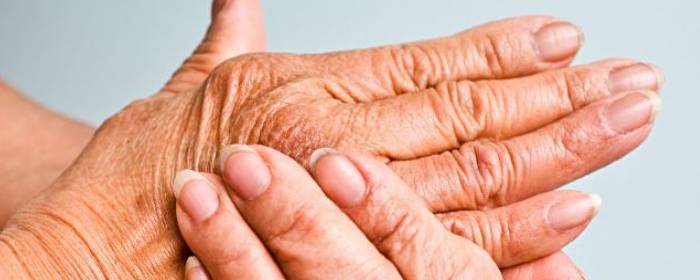Psoriatic arthritis is a chronic inflammatory condition that can become profoundly disabling. As a form of arthritis, the condition causes swollen, painful joints. The number and types of joints affected can vary over time, but most patients have polyarthritis i.e. arthritis in more than one body joint. Psoriatic arthritis also causes debilitating inflammation of the tendons, typically in the hands. Making matters worse, patients with psoriatic arthritis also suffer from skin rashes, eye problems, kidney and gastrointestinal problems, and profound fatigue. About one in five patients with psoriatic arthritis eventually develop severe manifestations of the disease in which the joints become permanently deformed and the surrounding bone breaks down.
The treatment of psoriatic arthritis usually includes a combination of drug and non-drug treatments. Nondrug treatments for psoriatic arthritis include exercise, physical therapy, and weight loss. Mild psoriatic arthritis is usually treated with nonsteroidal anti-inflammatory drugs such as naproxen. Moderate to severe psoriatic arthritis generally requires disease modifying anti-rheumatic drugs (DMARDs), which can include biologic and non-biologic agents. The typical non-biologic treatment for psoriatic arthritis is methotrexate. With the exception of severe disease, most physicians try methotrexate before using a biologic DMARD. If methotrexate fails, patients usually must move to one of the biologic agents, antibodies that are injected under the skin. Unfortunately, all DMARDs are associated with certain and sometimes severe side effects, and not every DMARD works for every patient with psoriatic arthritis.
Because psoriatic arthritis is potentially disabling and often difficult to treat effectively, researchers are aggressively pursuing other treatments. Stem cells offer a unique opportunity to provide patients with cells that can regenerate damaged joints and reverse the signs and symptoms of arthritis. To this end, Margaret Coutts and colleagues harvested stem cells from umbilical cord samples—the tissue that is routinely corrected after newborns are delivered is usually discarded as medical waste. They selected a patient with severe psoriatic arthritis would fail to find relief after nonsteroidal anti-inflammatory drugs, methotrexate, and biologic DMARDs. The researchers purified stem cells from cord blood and administered 200,000 cells per day to the 56-year-old man over a period of five days.
Within one week of umbilical cord stem cell treatment, the patient reported fewer and less severe psoriatic skin plaques and less joint pain. Encouraged by these results, the psoriatic arthritis patient continued receiving three rounds of stem cell treatments over six months. At the end of these treatments, the psoriatic skin plaques were almost completely gone, and the ones that remained were smaller, less prominent, and lost their red, scaly appearance. The man had substantially less joint pain and swelling and reported feeling “higher energy levels” and greater physical functioning. Lastly, laboratory markers of inflammation including ESR and CRP were noticeably improved.
Since these dramatic improvements occurred for only one person, they should be evaluated with caution. Additional studies with larger numbers of people are needed to make definitive conclusions. Nevertheless, umbilical cord stem cells led to profound improvements in this psoriatic arthritis patient’s life, a result that cannot be overstated.
Reference: Coutts, M. et al. (2017). Umbilical cord blood stem cell treatment for a patient with psoriatic arthritis. World Journal of Stem Cells. 2017 Dec 26; 9(12): 235–240.


 St. Petersburg, Florida
St. Petersburg, Florida
